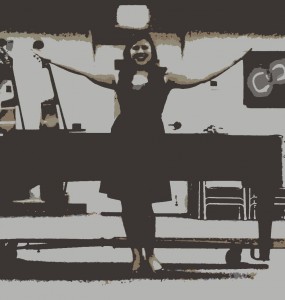Last month, the Harvard Gazette took a look at the role of visual information in assessing performance. In “The Look of Music,” the a study by Chia-Jung Tsay indicated that “nearly all participants—including highly trained musicians—were better able to identify the winners of competitions by watching silent video clips than by listening to audio recordings.” It’s kind of jaw-dropping. The article deals with instrumentalists (not singers), and that makes the findings even more sobering.
I’m now going to head off in two opposing directions with this information. Follow me in whichever direction(s) you wish.
Direction #1: Embrace the Visual
Opera is a visual as well as auditory art form, and we know that the way a singer occupies space and uses her body is a critical part of her art. I recently discussed the Harvard article with an acquaintance, and he said that he and his opera friends have taken to predicting the winners of competitions based on physical attributes and the way a singer carries himself. A bit of an oversimplification, but more applicable than you’d think.
If you’re an aspiring opera singer, this trend holds important implications. Make friends with your body. Know what it can do and be aware of the signals it sends. Communicate physically as well as aurally. Critique the visual aspects of your performances. You don’t have to be model-skinny or barihunk-buff. But you do have to move with assurance, agility and confidence. If you’re uncomfortable being on display, and the nuances of your physical presence aren’t integrated with your music-making, we sense it. And you start to lose your audience.
Direction #2: Danger, Will Robinson
From the article: “Even with professional musicians, who are trained to use sound, and who have both expertise and experience, it appeared that the visual information was overriding the sound.” That’s a strong word. Not informing, but “overriding.” And although I wish it weren’t so, I’m afraid it’s true.
I “watch” a portion of auditions with my eyes closed. (I know; you’ve all been thinking that I just don’t get enough sleep on the road and I’m catching up during your audition. Not so.)
I do it to eliminate unhelpful visual cues. It doesn’t mean that you look awful and I’m trying to divorce the awkward physicality from the sound; it’s exactly the opposite. I know that I fill in the gaps too favorably when I’m watching, just like the participants in the Harvard study. The minute I open my eyes, I will be either won over or put off by the singer’s visual presence; that’s an unavoidable and essential part of opera. But because my job is to suss out career potential, it’s critical that I don’t minimize technical flaws and look past musical sloppiness.
Take-Aways?
No clean conclusions, except that none of this is going away. It will become more and more complicated as we get increasingly visually oriented. Make your peace with it. If you’re a singer, make your technique bullet-proof, your artistry beyond compelling, and your physical presence unambiguous. If you’re an opera lover, think about the ways you consume music and experiment with how what you see interacts with what you hear. There are challenges and opportunities here for all of us.
Add Comment